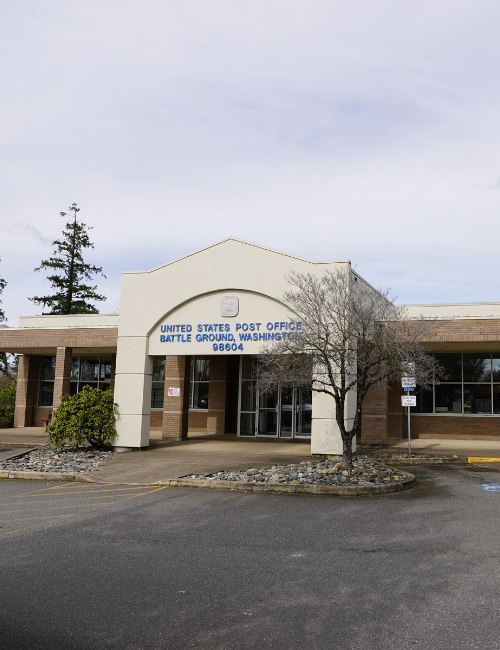
Managing an executor’s duties, particularly selling a piece of property, can be complicated. If you are legally bound to this responsibility, you must know the local laws connected to the duties. This is your chance to learn to what extent an executor can sell a piece of property to close an estate. Knowing what legal authority governs such a transaction, as well as the executor’s duties, will be outlined. You will learn the fundamentals of local probate laws that govern the selling of property, local probate regulations to be considered, and the strategic factors associated with this task. This is a task that the executor will have to complete, and no one will appreciate this more than the supposed beneficiaries. This is what the executor is legally mandated to complete. This is what the executor is legally mandated to complete.
Understanding the Role of an Executor in Washington
In Washington State, an executor or personal representative assumes the estate-related responsibilities of the decedent and takes on the critical accountabilities as executor and personal representative of an estate, performing both management and distribution functions, which involve considering the estate’s existing liabilities and granting abandoned property rights to the estate’s beneficiaries.
Managing probate property may also involve selling real estate or other assets that require court approval. This also involves preparing legal documents to be filed with the probate court and obtaining the court’s consent to various property transfers. Effective communication during the process and distribution of estate assets can avoid disappointment and legal disputes with beneficiaries.
Executors and beneficiaries gaining a mutual understanding of their respective responsibilities results in practical cooperation during estate administration in Battle Ground, Washington, and nearby communities. Having the proper preparation and knowledge of legal obligations, the probate process can be completed seamlessly while honoring the decedent’s wishes and maintaining the decedent’s estate plan’s integrity.
Responsibilities of an Executor
Taking on the role of an estate executor in Washington State requires understanding intricately varied obligations. As a personal representative, one must manage the probate process, which entails carefully collecting and weighing the decedent’s real and personal estate. As the representative, one of the higher-order responsibilities is the financial maintenance, oversight, and preservation of the estate, which may also entail selling portions to maximize estate value. The estate executor is also responsible for ascertaining outstanding debts and settling liabilities, which may include estate debts, as counselled by a probate attorney to comply with state estate laws.
Executors are instrumental in communicating with beneficiaries and clarifying matters concerning asset distribution. Whether to sell or distribute property requires coordination from the stakeholders, and their interests ought to be balanced transparently and equitably. The disputes that often arise in the administration of estates result from poorly designed systems. Attention to detail and timely communication may avoid these disputes and make the administration of a complex estate less complicated.
Where property is subject to probate, additional legal steps must be taken. The executor manages the court procedures, oversees probate sales, and coordinates with attorneys to ensure procedural steps are followed. Integrity and visibility in the distribution of assets build confidence among the beneficiaries and discharge the executor’s fiduciary duty. Executors can obtain the stakeholders’ trust by prioritizing lucid communication, legal compliance, and the timely administration of estate assets.
If you’re managing an estate in Washington State and need guidance or a fair offer on probate property, contact us today to explore your options.
Can the Executor Sell the Property?
A common issue, often misunderstood, in managing a decedent’s assets is whether the estate executor can sell property. In Washington State, the law gives executors—personal representatives—the power to sell probate property. Such authority is vital when prioritizing debt settlement and property sold for a greater profit. However, the executor must focus on local probate court rules and the law when selling real estate. In Washington, probate attorneys assist executors with the legal property valuation, contracts, and all other steps in the selling process.
Executors must remember that the sales process is to be executed on behalf of the estate, rather than privately. Therefore, transparency and fairness must be a priority. Documenting appraisals and all offers and approvals is critical in protecting the executor and the beneficiaries. Involving the beneficiaries in the decision-making process streamlines the process and fulfills the estate and decedent’s purpose to minimize the chances of conflict.
Real estate sales in probate require particular care and skill. Executors must pay attention to and understand the fundamentals of the relevant sales market segments and the guidance their real estate and legal advisors give. Careful and considerate management allows executors to maintain the balance needed to ensure fiduciary duties are met, the decedent’s wishes are executed, estate value is maximized, and the probate experience is productive and amicable.
Navigating the Probate Process in Washington

In Washington, the estate’s beneficiaries and executors must go through the emotional probate journey, which warrants careful decision-making. Fortunately, the executors bear most of the responsibility as they manage the estate of the decedent, pay the debts, and allocate the assets to the appropriate beneficiaries as stated in the will. Executors must handle complex legal issues and validate the will of the probate court, and the probate court will issue the necessary orders to manage the assets. Executors must understand all phases of the probate process, especially the possible challenges, e.g., creditor claims, beneficiary disputes, to preserve the estate value and avoid probate process delays.
Understanding the State of Washington probate schedule is as important as understanding the requirements, as the estate’s complexity and court calendars influence the timeline. Sometimes, the estate is likely to close within a few months. In other cases, estates can extend to over a year if there are challenges. Executors appreciate understanding the correct times to file creditors’ notices, deliver asset inventories, and distribute court-ordered payouts. Knowing these steps and respective timelines ensures executors and beneficiaries aid in the proper and legal fulfillment of the decedent’s testament.
Sell With Isaac helps estate executors and beneficiaries in Washington navigate the probate process efficiently. We guide managing assets, settling debts, and complying with legal requirements to protect the estate’s value and ensure the decedent’s wishes are honored.
| Probate Step | Description | Timeframe | Key Considerations |
|---|---|---|---|
| Filing the Will | The executor submits the will to the court for validation. | Within 40 days of death | Ensure the will is the most current version and properly signed. |
| Inventory and Appraisal | The Executor gathers and assesses all estate assets. | 3–4 months | All property must be accurately appraised and documented. |
| Paying Debts and Taxes | The executor gathers and assesses all estate assets. | Varies depending on obligations | Ensure adherence to the will’s instructions and consider court orders. |
| Distribution of Assets | Remaining assets are distributed to beneficiaries. | After debt settlement | All financial matters must be resolved; file the necessary documents. |
| Closing the Estate | Final account submitted and estate officially closed. | Confirm the validity of debts; tax obligations may affect distribution. | Settle the deceased’s debts and any taxes due. |
This table concisely overviews the Washington probate process, highlighting essential steps, timelines, and key considerations.
Steps in the Washington Probate Process
The probate process in Washington state is a careful and calculated system that estate executors must follow to complete estate decedents. It starts the process in the probate court and authenticates the will, which is the first step the decedent takes. Once the will is validated, the executor is appointed and certified as the legal representative for the decedent, which gives them the power to manage the estate, settle all the debts, and look after the beneficiaries. The probate court order allows the court to handle all the responsibilities in succession.
After being appointed, executors must create a complete inventory listing all the estate assets to determine the estate’s total value. Proper access and division of the assets are essential to distinguishing, identifying, and probating a non-probate estate. This will be helpful when receivers are disputing the executor’s assignment. Washington law protects the estate and the executor, and estate integrity solves legally outstanding and probate debts with the estate’s creditors.
Executors are obliged to communicate with heirs and beneficiaries about the status of the probate proceedings. If the situation requires it, executors can contact a probate attorney specializing in the field, which will help with the complex issues. Complete record-keeping of all actions and decisions taken will bolster compliance and accountability. This protection works two ways: for the executors and the beneficiaries.
The last step in the probate process is asset distribution. Before the remaining assets can be assigned as stated in the will or as per the laws of intestate succession, the executor should settle the taxes and probate-related debts. Properly recording each distribution aids in satisfying the court in case of an audit and minimizes the chances of litigation. By performing these functions, the executor can close the estate with the confidence that the decedent’s wishes were honored and that the beneficiaries were served equitably.
Timeframe for Probate in Washington
The duration of the probate process in Washington varies based on the intricacies of the estate involved, as well as the efficiency of the probate court. Usually, the process will take at least six months. In some cases, it can last well over a year, which accounts for the statutory waiting periods, i.e., allowing creditors to file claims and wrapping up disputes among the beneficiaries and executors. The first phase, which involves filing the probate documents and validating the will, is also lengthy, taking several weeks, especially if there are any contested claims.
The time taken for each of these phases will depend on the nature of the estate and its real property. Appointment of the executor is of little importance. Estate asset inventorying and valuation will likely cause months of delays, especially if there is fine real estate or a unique property. The process will take time, even when there are professional estate appraisers and probate attorneys. Claims or debts posed will also take time to resolve. The estate closure process will be slow in paying out claims and reaching negotiated settlements.
Conflicts between beneficiaries or challenges to the executor’s decisions may escalate the probate process and usually involve the courts. Complications may be resolved expeditiously with the assistance of an experienced probate attorney and thorough documentation.
By observing statutory and court-imposed timelines, executors insulate themselves from personal liability. Executors are best served, and the estate best advances, by proactive communications with the heirs and their attorneys. Such communications support the timely accomplishment of the decedent’s estate wishes and an orderly probate process in the State of Washington.
Selling Probate Property in Battle Ground, Washington

In Battle Ground, Washington, selling probate property involves responsibilities and legal requirements that differ significantly from a traditional real estate transaction. The executor, also known as the personal representative, is tasked with managing the estate’s assets, including real estate, in compliance with probate court guidelines.
This role requires meticulous attention to legal procedures, such as obtaining court authorization for the sale, providing proper notice to heirs and beneficiaries, and ensuring that any liens or debts tied to the property are addressed before the transaction. Executors must also coordinate with real estate professionals, legal advisors, and a cash for houses company in Longview and other Washington cities to ensure the process is efficient and fully compliant with Washington state law. Beyond legal obligations, a successful probate sale demands a solid understanding of the local real estate market and property valuation.
An executor must determine the property’s market value before considering current valuations, neighborhood comparables, and condition. The final sale price adjusts based on strategic market and timely selling to the estate’s and beneficiaries’ advantage. Combining market knowledge and the complexity of the executor’s legal duties can ensure a streamlined transfer and a seepage of the estate’s financial and personal interests alongside all stakeholders.
How to Sell Probate Property Successfully
Successful liquidation of estate property requires attention to the legal facets and the property’s condition in the market. The first step on the legal side is gaining the court order, which gives the executor the right to sell the estate’s real estate. Additionally, knowing the market in Battle Ground, Washington, is paramount. Executors must obtain the opinion of an experienced local estate agent to understand the market price trends and the estate’s value to set an appropriate price that will yield the highest return to the beneficiaries.
A further pivotal task is properly marketing the probate property. It is possible to attract buyers by taking high-quality photographs of the property, advertising it in a targeted manner, and highlighting its unique features. Explaining the property’s condition, legal status, and court requirements in a trust-building manner will ease negotiations.
Because a seller’s timing influences final pricing, the probate attorney is the professional most likely to help a personal representative of a given estate determine a timeline. An estate’s marketing also needs a prepared executive to help avoid gaps with court orders and other documents, such as the estate deed and appraisal.
Keeping beneficiaries informed at every stage—by discussing offers and sharing updates —minimizes contention and encourages consensus. Integrating expertise, effective communication, and thoughtful market navigation enables executors to conduct a successful sale that satisfies the decedent’s wishes and positively serves the estate.
Legal Considerations When Selling
Legal considerations are critical when selling probate property due to the complexities of complying with Washington law. Executors must obtain court approval to sell the probate home. This key step affirms their authority through letters of administration or similar legal documents, allowing them to complete real estate transactions transparently and efficiently. Executors can also work with cash house buyers in Battle Ground and surrounding cities in Washington, which can help streamline the sale process.
Understanding Washington state probate laws is critical, as property sales may depend on state-specific guidelines. Exhaustive steps, including notifications, appraisals, and market value assessments, help generate a value, protect against every executor’s personal liability, and complete estate management per the decedent’s wishes.
Probate complexities require the assistance of competent counsel. Conveying compliance, querying by direct executors, filing sales, and court documents, and alluding to conflicts of probate court to assist the fiduciary duty are the intrinsic values of estate attorneys. Reliance on probate counsel becomes more vital when acts of disposal trigger local laws, which in Battleground, include zoning and taxes. Real estate professionals on the market are a tremendous resource. Valuations, offers, and closing statements, maintained in archives, are a record of composite actions undertaken and a record of accountable actions.
Executives can effectively manage probate property sales, protect the estate, and honor the decedent’s intentions by carefully following legal requirements, fiduciary duties, and expert guidance.
Challenges Faced by Executors in Washington

In Washington, an executor’s or personal representative’s function is multidimensional. Executors must liquidate the deceased’s assets, pay debts, and distribute property among the beneficiaries. This role requires an estate executor’s legal, financial, and emotional competencies, especially in ballooning family dynamics. Executors must comply with the law and then the probate process—value explicit estates and submit the estate to be probate challenged with deadline-driven procedural rules and paper documentation.
A primary responsibility is the handling of probate property. In Washington estate probate, selling the deceased’s real estate, in estate probate is the most challenging executor’s function. Washington estate probate law and the probate courts also must signal to and get the approval of the heirs and other probate stakeholders. Executors must determine and assess the market value, negotiate with real estate and management broker stakeholders, and repair or expand the property probate with estate disclosure statutory issues.
When executors comprehend typical probate issues and employ problem-avoidance measures, their efficacy increases, engaging lawyers and real estate professionals, documenting all pertinent information, and having open communications with estate beneficiaries limit liability and enable administrators to manage the estate fairly and openly. Such measures allow Washington executors to handle their assignments with minimal aggravation when executing the probate estate.
Common Issues in Selling Probate Property
Selling probate property in Washington State presents unique challenges for estate executors or personal representatives. These arise from strict probate court requirements, the emotional impact of an heir’s loss, and the complexities of real estate transactions. A primary challenge is obtaining legal permission to sell, typically through a court order. Without it, executors risk breaching their fiduciary duty, incurring personal liability, and invalidating the sale. Compliance with probate laws governing how and when property can be sold is essential.
Timing is also critical, as executors must balance market conditions with court timelines. Waiting for approval can lead to missed opportunities or lower property value. Beneficiary disputes over valuations may arise, making accurate appraisals essential. Executors must balance legal compliance with market-savvy decisions.
Dissent from beneficiaries can be another hurdle, especially if they feel the property is undervalued or mishandled. Clear communication about court proceedings, offers, and the selling process helps minimize conflicts and ensures decisions align with the decedent’s wishes.
Consulting a probate attorney is highly recommended. Attorneys guide executors through Washington’s probate laws, court procedures, dispute resolution, and estate protection. Partnering with a real estate professional familiar with selling probate property in Battle Ground, Washington, can further ease the process. With proper legal and market expertise, executors can navigate complexities effectively and achieve favorable outcomes for the estate and beneficiaries.
Mitigating Risks During the Selling Process
Mitigating risks when selling probate property in Washington is essential for an executor to protect the estate’s value and comply with legal obligations. The process begins with understanding Washington’s probate laws and obtaining proper authorization, including court orders confirming the executor’s duties and authority. This legal foundation reduces the likelihood of future disputes.
Thorough preparation and documentation are key. Executors should keep detailed records of appraisals, repairs, offers, and communications with beneficiaries. This ensures accountability, transparency, and protection against mismanagement claims while streamlining legal or beneficiary reviews.
Clear communication also reduces risk. Regular updates to beneficiaries about market conditions, offers, and challenges help maintain trust and prevent conflicts. Inviting input at key stages encourages collaboration rather than disputes.
Executors should proactively manage market risks by assessing local real estate trends in Battle Ground, Washington, and consulting experienced probate-savvy agents. This helps position the property effectively, avoid undervaluation, and maximize estate value.
Finally, expert legal advice is crucial. A probate attorney can guide the executor on compliance, address potential disputes, and draft agreements to safeguard estate interests. By combining legal guidance, careful documentation, transparent communication, and market strategy, executors can increase the likelihood of a successful sale while protecting beneficiaries’ interests and honoring the decedent’s wishes.
FAQs:
What legal authority does an executor have in Washington State to sell property?
In Washington State, executors and personal representatives have the legal authority to sell probate property. This authority is granted through the probate process and confirmed by a court order, which allows executors to manage and sell estate assets.
How does an executor begin the process of selling probate property?
To sell probate property, an executor must obtain court authorization, ensuring compliance with legal protocols. The process involves appraising the property, obtaining necessary legal documents, and consulting with beneficiaries to align decisions with the decedent’s wishes.
What are some strategies to manage legal and market risks during a probate sale?
Executors can mitigate risks by maintaining comprehensive documentation, communicating transparently with beneficiaries, and consulting real estate professionals to align the sale with favorable market conditions. Engaging a probate attorney ensures legal compliance and effective risk management.
How long does the probate process typically take in Washington?
The probate process in Washington can last anywhere from six months to over a year, influenced by estate complexity and court schedules. Initial stages, including will filing and authentication, can take several weeks, followed by asset inventory and debt settlement.
Why is maintaining transparency important in the probate process?
Transparency is crucial to foster trust among beneficiaries and to ensure fair asset distribution. Keeping detailed records and open communication minimizes disputes, respects the decedent’s wishes, and protects the executor from potential liabilities.
Do you need to sell your house? Sell it quickly, avoid costly repairs, or prefer a hassle-free sale. Sell With Isaac is here to help. We offer fair cash offers, handle all the details, and make the process seamless. Ready to sell or have questions? Call us at (360) 207-4133 for a no-obligation offer. Get started today!
Helpful Battle Ground Blog Articles
- Should I Sell Rental Property in Battle Ground, WA?
- Selling a House in Bad Condition in Battle Ground, WA
- Can the Executor of a Will Sell Property in Battle Ground, WA?
- Average Cost to Sell a Home in Battle Ground, WA
- How Long After an Appraisal Can You Close in Battle Ground, WA?
- Selling a House to a Family Member in Battle Ground, WA
- Battle Ground, WA, Neighborhood Map
- Fun Facts About Battle Ground, WA
- Battle Ground, WA, Property Tax Rate
- Is Battle Ground, Washington Safe?
- Battle Ground, WA Property Managers
- Free Things to Do in Battle Ground, WA
- Battle Ground, WA Cost of Living

